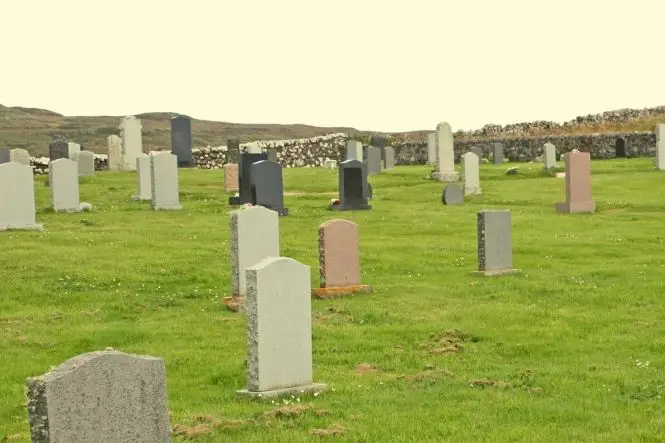It is a popular belief that humans bury the dead in an act of sanitation or for public health requirement reasons, and of course, this is a positive – but it’s not why it all started. In fact, burials began as a way of respecting reasons, and of course, this is a positive – but it’s not why it all started. In fact, burials began as a way of respecting the dead and was an important act through many religions, tribes, and cultures.
Burials have a long line of tradition dating back as far as 100,000 years. The traditions have changed over time and adapted to the modern-day, but several acts or beliefs still remain. Many anthropologists believe that burials were one of the first acts of religion, showing that ancient cultures put thought into the afterlife by burying their loved ones closer to the nether world.
Nowadays, people largely hold funerals and visit gravestones as a way of grieving. It helps them feel as though the person is still close to them, and often, people find comfort in knowing the deceased has a final resting place.
Other reasons why we bury the dead include; to deter any wild animals from getting to the body, to avoid the body being stolen by grave robbers, to stop the spread of diseases, or to prevent those left behind from watching the body decay.
Religions and burials
Each religion has different traditions and beliefs regarding burials, below we are going to go into a bit more detail about how each religion buries its deceased.
Islam
Islam religion teaches that when the body is in the coffin, it will be trialed and questioned by Angels to separate the righteous from the unrighteous. This will last until a said Judgement Day, where a horn will be blown and the final decision will be made. For the good souls, this period of time will seem like a paradise, but for the worse, it will be torture.
Cermaniation is discouraged. Men will be buried with up to 3 pieces of white cloth made into a shroud, for women, it is 5. The body will be placed towards Mecca and often the grave is raised above the ground to prevent people from walking over it. However, large displays of wealth or status on graves are forbidden.
Christianity
Different denominations of Christianity vary in their burial practices. Protestant churches are accepting of cremation, and strongly emphasize the difference between body and soul. As long as the soul travels to heaven, the body is fairly unimportant. However, Orthodox and Roman Catholic denominations believe in the resurrection of the body and highly favour burial.
In some Orthodox cases, the body will not be buried until one year after death. The funerals also differ as the focus will not be directed towards the life or character of the deceased, rather rituals or liturgical will be held.
Hinduism
Hindus believe that the deceased will be reincarnated or reach ‘moksha’, interpreted as being a personal God. Funeral rituals are based on an ancient set of sculptures called Vedas.
Most Hindus are cremated with the exception of very young children or renunciation. They follow a Vedic ritual, seen as the fire God, which moves things from the realm of mortals to the Gods. The same belief goes for bodies. Ideally, the ashes should be spread over a river that leads into the sea.
Buddhism
Buddhists often follow the burial traditions in the country they are living in, rather than having any specific rites prescribed to Buddhism itself. Cremation is one of the most common methods in the modern day, but water burials and inhumation are also practiced.
Tibetan Buddhists will read the ‘Tibetan Book of the Dead’ to the dying and after death to help the deceased accept their end. One of the most famous forms of traditional Buddist burials is the Tibetan Sky Burial, where the body is taken up to the mountains to be eaten by vultures. The quicker the vultures come symbolizes how spiritually advanced the person was.
Judaism
Jewish people have unspecified beliefs about what happens after death and are more focused on the living, where good behaviour grants you a longer life. The deceased tend to be buried rather than cremated due to the belief in resurrection and the body is never left alone between the time of death and the funeral.
Some religious families will sit ‘shiva’ following the funeral, where for seven days they are released from many religious obligations. Often, candles are lit and mirrors are covered up. This is a popular time for relatives or friends to visit and share stories of the deceased. Family members tend to leave a stone by the grave rather than flowers to commemorate burial cairns.
The benefits of burying the deceased
All in all, burying the dead is the most efficient way of saying goodbye to our loved ones, from respect to sanitary reasons. Having a location to visit the dead can bring people much-needed closure and allows them a focal point to express grief and affection for those lost. It also prevents friends and family from having to witness the body decompose.
Burials have served great purpose throughout religion and during times where medical care was not adequate. It has been an act that helped aid public health and allowed people a send-off that mirrored their beliefs while they were alive.


